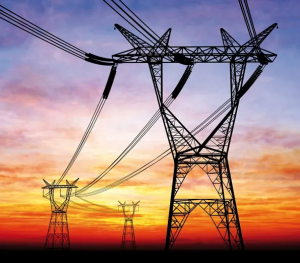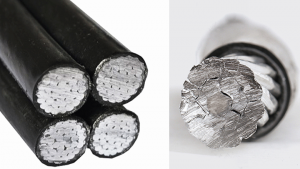Global Overhead Cable Market Size 2020-2024 —Comparison by Data
According to the latest Research report released by Markets Research Engine, the global overhead cable market size is called upon to exceed USD 80.5 billion by 2024, growing at a compound annual growth rate (CAGR) av 6% during the period.
Increasing demand for electricity as the world’s population and economic activity grow, coupled with the free of carbon dioxide transition, is increasing renewable energy generation, further stimulating increased investment in transmission and distribution infrastructure. Derfor, it is necessary in order to update, build a more mature and reliable grid system to complete the transmission of electricity to users.

Samtidig, the acceleration of urbanization and industrialization has promoted the development of railway and other infrastructure construction, which in turn stimulates demand for the overhead cable market.
Imidlertid, the volatility of raw material prices and the protection of environmental requirements is also major constraints on the development of this market.
I mellomtiden, global overhead cable market size is poised to grow by USD 18.59 billion during 2020-2024, at a CAGR of nearly 5% during the period, according to a report released by Technavio International Market on October 10, 2022.
The upgrading of grid infrastructure is part of the major factors driving the market growth.
Smart grids have been increasingly used in many countries as they integrate analog or digital information as well as computer-based control and automation into the power grid.
The growth is primarily due to increased investment in smart grids due to the growing demand for electricity. As a result, the need for overhead cables has intensified. With the spread of smart grids, the demand for overhead cables will increase in the coming years.
On the other hand, the expanding rail network, which is part of the major trends in the overhead cable market, will also drive this market growth.
The expansion of metropolitan areas and population growth has increased the need for rail networks to improve connectivity. This has created a need for power cables that carry electricity for the rail system.
The railway industry is undergoing a lot of investment and technological progress, which has stimulated the demand for the railway industry and the overhead cable. Countries with large rail networks have planned to invest huge sums to optimise their networks, triggering more demand for distribution cables.
I 2019, Asia-Pacific was the largest regional market for overhead cables in the world, and factors such as increasing power demand due to population growth, rapid industrialization, urban migration, and higher living standards will greatly drive the growth of the overhead cable market in the region during the forecast period.
During the forecast period, 68% of the market’s growth will be from the Asia-Pacific region. Kina, India and Japan are the main markets for overhead cables in the Asia-Pacific region. The market in this region will grow faster than the market in other regions.

In terms of voltage levels, high-voltage overhead cables are generally used to transmit power generated by power plants to substations and end users. Upgrading of transmission and transformation infrastructure, growing power generation capacity and increasing use of renewable energy generation has created a demand for high-voltage cables. Imidlertid, market share growth of high electric overhead cable will be slower than that of medium voltage market.
We can see that the data of the two institutions are basically the same, from which we can also infer that the situation of the global overhead cable market in the next few years is very optimistic.
Global market size for overhead cables, 2022-2026
In a recently released report, the agency stated that the global overhead cable market share is expected to grow by USD 17.67 billion during 2022-26, at a CAGR of 5.1% during the period.
One of the key factors leading the growth of the overhead cable market is the increase in renewable energy generation. Overhead power cables are commonly used to transmit electricity generated by power plants. The increasing need to switch to renewable energy sources has resulted in an increase in electricity production from wind turbines, solar power and the like. This has resulted in the need for newly installed overhead cables.
For now, renewable energy is the fastest growing source of electricity generation. Countries around the world are focusing on establishing clean energy projects such as solar and wind power generation and reducing the use of fossil fuel. Thus stimulating the growth of the overhead cable market.
In terms of development trends, the Gulf countries will have a positive impact on this market during the forecast period, as the good economic growth in the region and the strong momentum in sectors such as manufacturing, entertainment, tourism, and education are contributing to the increase in power demand in the region, leading to the increase in the application of overhead cables.
Megachile projects, modern infrastructure, rising immigration and economic development have all increased over the years. These developments are called upon to create the demand for overhead cables, which will drive the growth of the global overhead cable market.

During the forecast period, 34% of the market growth will be from the Asia-Pacific region. Kina, Japan and India are the main markets for overhead cables in the Asia-Pacific region. The market in this region will grow faster than the market in other regions.
Growing populations, rapid industrialization, urbanization, and higher living standards have led to increasing demand for electricity in the Asia-Pacific region. This will boost the growth of the overhead cable market in APAC during the forecast period.
On the other hand, the volatility of raw material prices is a major problem for the market. The principal raw materials used to make overhead power cables are aluminum and copper.
All power cable suppliers bear most of the manufacturing costs of obtaining these raw materials. Fluctuations in the prices of copper and aluminum and other essential raw materials, including fuel and energy, cause significant fluctuations in the cost of sales or revenue for cable manufacturers.
Suppliers attempt to restore the instability of metal costs by negotiating price changes for final products. As a consequence, volatile raw material prices may hinder the growth of the market.